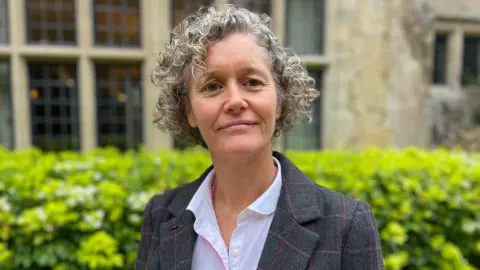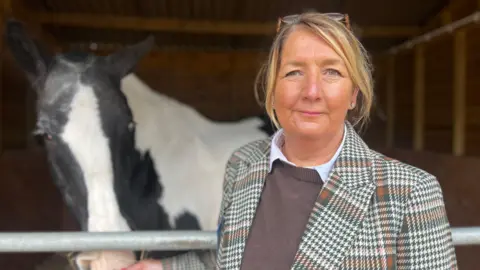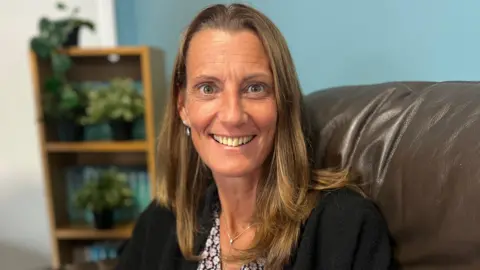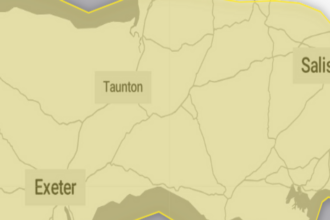Ellie CleverleyPolitics South
 BBC
BBCA charity that assess the needs and distribute grants to other charities says so many have applied for support it can only help about one in 10 applicants.
The Hampshire and Isle of Wight Community Foundation (HIWCF) receives money from philanthropists, businesses and donors that want to help their local community.
With an annual budget of about £135,000, it says it usually funds a dozen charities annually but this year has had 141 asking for help.
It is now calling on the government to provide match-funding to organisations like itself – effectively doubling the amount of cash available.
HIWCF is an independent charity and its role is to look at whether bids fit the criteria for a grant and then distribute the money to local grass-root projects.
CEO Jacqui Scott says this year demand has been incredibly high: “We are normally used to being three-or-four times oversubscribed, but we are talking about 10 times nearly, so that is a significant increase.”

Fortune College is a charity based in Christchurch in Dorset and New Milton in Hampshire. It uses horse-riding therapy to help 16-to-25-year-old SEND students.
It was successful in the past in getting funding from HICWF and used it to buy a horse trailer.
Deputy Principle, Suzi Barnett said the grant was crucial: “We are able to get three horses out at a time now, so we can get more students out in the community with the horses.
“But we just about break even with a core funding, so we are reliant on other forms of funding.”

Youth and Families Matter, a Totton-based charity that supports local people, has been struggling to get grants, including one from HIWF.
Project Leader Kelly Price said: “We are having to put more-and-more bids in.
“There are increased needs, we are getting more referrals, more competition with more charities needing help and our costs have gone up – it’s a perfect storm really.”
Ms Scott says she understands the pressures small charities are facing and thought one solution would be a match-funding programme: “Community foundations have a brilliant link with local philanthropists.
“But if the government were to come to us with a match-funding programme we could easily double their money.”
A match-funding programme is where for every pound raised by a charity the government also puts in a pound, effectively doubling the total raised.
Sometimes it comes with conditions and a charity might only get the match funding if it raises an agreed amount.
HIWCF argues it would be a good use of funding because there would be benefits in local communities which in the long term helps the government.







